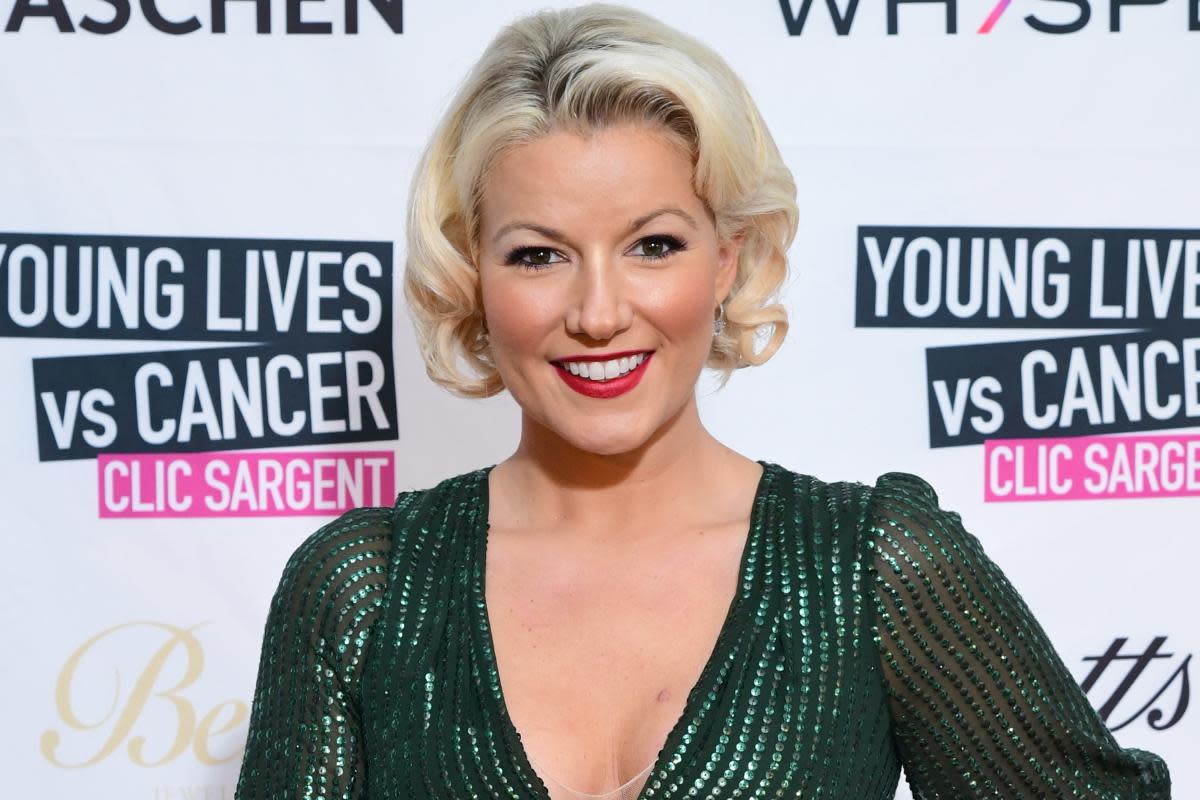Mother-of-three shares how late BBC star Dame Deborah James helped save her life

A mother-of-three has shared how the late BBC star Dame Deborah James helped save her life from cancer.
40-year-old Lyndsey Ainscough from Greater Manchester, who was diagnosed with stage three bowel cancer after several months of symptoms, said she only sought help after seeing the radio presenter's campaigns.
Deborah James sadly passed away in 2022 but her work as a campaigner has helped bring attention to the condition.
The secondary school attendance manager underwent experimental immunotherapy treatment at the Christie NHS Foundation Trust in Manchester and is now free of cancer.
Lyndsey Ainscough only sought treatment for bowel cancer after seeing Dame Deborah James's campaigns (Image: PA)
Mother-of-three shares how late BBC star Dame Deborah James saved her life
Dame Deborah James’s mother, Heather, welcomed the news, saying it was an “honour to hear the impact” of her daughter’s work “through wonderful stories like Lyndsey’s”.
Mrs Ainscough told PA: “I’d been getting quite a lot of symptoms during the Covid lockdowns and had bleeding, weight loss and fatigue.
“I’d seen Deborah James was on the news and she was trying to highlight her story. It was one day that it clicked.
“I remember being in the kitchen ironing and she came on the news and she just mentioned something that caught my attention.
“And I turned to my husband and said: ‘Those are the symptoms I’ve been getting, maybe I’ve got bowel cancer’.
“He kind of just shrugged it off with ‘don’t be silly, you’re too young to have bowel cancer’. And it was from that moment that I actually decided to go and get checked.”
Dame Deborah James used to star on BBC Radio 5 (Image: PA)
Discussing her trip to the GP and subsequent diagnosis, Lyndsey said: “I thought I was going because I had got IBS or something like that because I’d always kind of had trouble with bloating. I really didn’t think anything of it at the time.
“I didn’t make a big deal out of it, my husband was working and I didn’t ask him to come with me or anything like that.
“I genuinely thought I was going to get diagnosed with IBS. My mum took me for the appointment and it was more or less confirmed there and then that it was rectal cancer.”
While chatting with nurses, she said that there was suddenly an "awful silence”.
She added: "I could see something on the screen – obviously I didn’t know what it was, but I knew it was something.
“It did not enter my mind for one minute that it could be cancer.
“The computer was switched off…and the nurse turned to me and said ‘did you see what was on the screen?’ I said ‘yeah, what is it?’ and she said ‘we’re not sure, but it’s highly likely to be cancer’.
“It’s really hard to explain what happened next to be honest, but I felt like the bed was closing in on me, it was complete shock, a complete shock.
“I had to ask her to repeat several times what she had said…..I thought ‘I’ve got cancer, I’m going to die’.”
After telling her husband Christian about the news, the couple opted to tell their eldest child, Alfie. However, they decided their younger children Perry and Spencer were too young to understand.
Mrs Ainscough said: “The worry was tremendous, particularly with having such young children.
“To be fair, (Alfie) did accept it quite well at the time, but that was probably one of the hardest things I’ve ever had to do.
“And telling my dad was one of the hardest things to do as well because my dad wasn’t there and it was totally unexpected. Telling him was horrific.”
The news was made all the more crushing when she discovered that she was not suitable for surgery.
The tumour, which was 5cm in size, was on the outer lining of the bowel so could not be removed and a stoma would need to be fitted.
However, following a referral to the Christie Foundation, medics offered hope that she was eligible for a clinical trial of immunotherapy.
“It was a no-brainer, I was 100% going to take it,” Mrs Ainscough said.
She said that this treatment led to symptoms such as loss of appetite and extreme fatigue.
She said: “It was incredibly difficult, especially around Christmas-time which was my favourite time of year as well, and it was my son’s birthday."
However, scans later showed that she was free of cancer with the immunotherapy combined with chemotherapy and radiotherapy having wiped the disease out.
“I felt like I’d been given another chance,” Mrs Ainscough said.
“I couldn’t believe it had actually gone. I thought they may have said it had shrunk and they were then ready to do surgery, but it was completely gone. A miracle.
“When they say there is a possibility of getting a full response, you don’t ever think that’s going to happen….when I heard that, it was just incredible.”
Mrs Ainscough credits the BBC star's awareness campaigns with making her seek out a diagnosis.
“Dame Deborah helped save my life,” she said.
“I think the fact she shared her story of having children – I know they’re not as young as mine – but she was a normal young woman with children, with this horrendous diagnosis.
“And it kind of just hits home that it can happen to normal people in all walks of life…it really doesn’t discriminate. It can hit anyone at any time.
“Literally seeing her on the screen that day openly talking about the importance of recognising symptoms and not being embarrassed, urged me to get checked. I have her to thank for that.”

 Yahoo News
Yahoo News 
